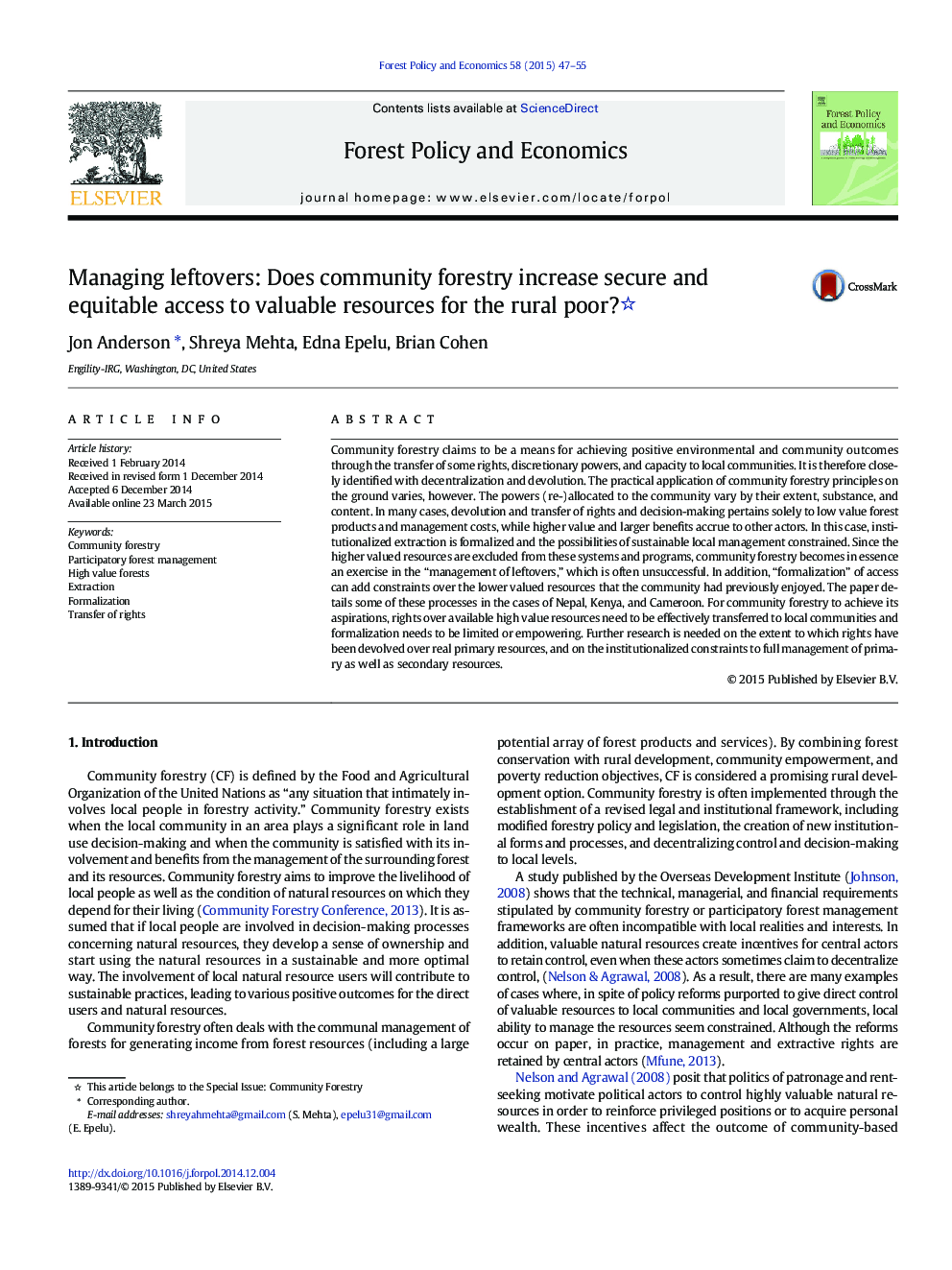| کد مقاله | کد نشریه | سال انتشار | مقاله انگلیسی | نسخه تمام متن |
|---|---|---|---|---|
| 91172 | 159754 | 2015 | 9 صفحه PDF | دانلود رایگان |

• Most cases of community forestry do not increase local access and control to valuable resources
• The lower the value of natural resources, the more likely the resources are to be decentralized to local communities.
• The higher the value of resources, the higher the level of formalization and greater likelihood of central control.
• Resource management often includes the appropriation by the state of resources traditionally governed by local communities.
• State sponsored community forestry rules, imposed on resource-dependent people, often contribute to impoverishment.
• Communities continue to engage in community forestry in spite of its extractive nature because they wish to avoid further.
Community forestry claims to be a means for achieving positive environmental and community outcomes through the transfer of some rights, discretionary powers, and capacity to local communities. It is therefore closely identified with decentralization and devolution. The practical application of community forestry principles on the ground varies, however. The powers (re-)allocated to the community vary by their extent, substance, and content. In many cases, devolution and transfer of rights and decision-making pertains solely to low value forest products and management costs, while higher value and larger benefits accrue to other actors. In this case, institutionalized extraction is formalized and the possibilities of sustainable local management constrained. Since the higher valued resources are excluded from these systems and programs, community forestry becomes in essence an exercise in the “management of leftovers,” which is often unsuccessful. In addition, “formalization” of access can add constraints over the lower valued resources that the community had previously enjoyed. The paper details some of these processes in the cases of Nepal, Kenya, and Cameroon. For community forestry to achieve its aspirations, rights over available high value resources need to be effectively transferred to local communities and formalization needs to be limited or empowering. Further research is needed on the extent to which rights have been devolved over real primary resources, and on the institutionalized constraints to full management of primary as well as secondary resources.
Figure optionsDownload as PowerPoint slide
Journal: Forest Policy and Economics - Volume 58, September 2015, Pages 47–55